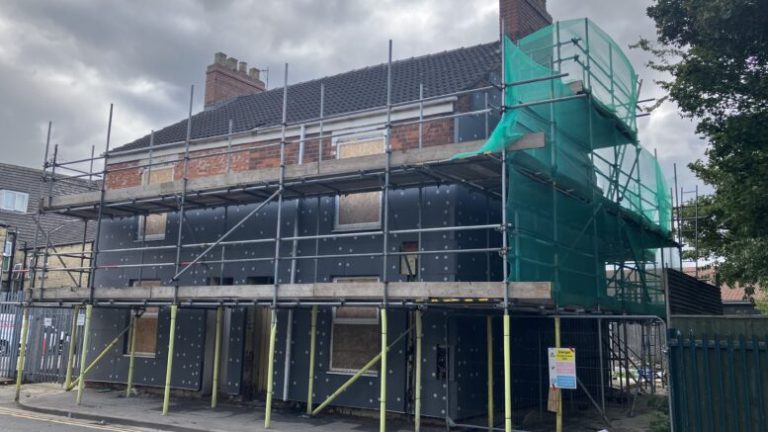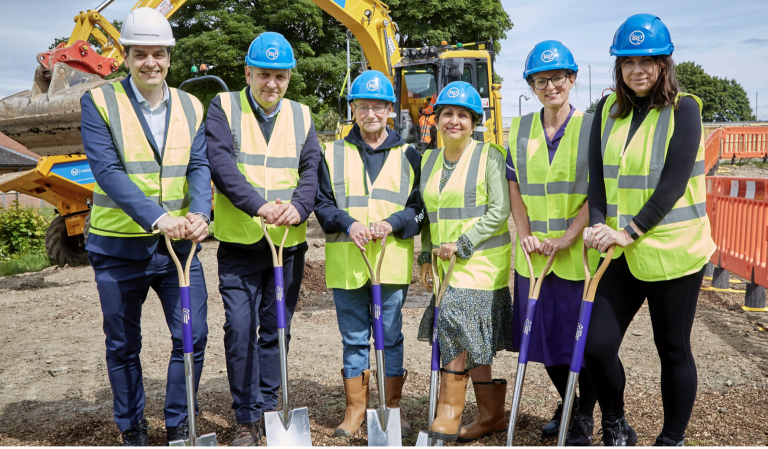CBRE makes changes to Northern leadership team
95 redundancies confirmed as administrators appointed to financial services group
Council adopts new conservation area for Hull
Seven million people have used GenAI for work
City Council awards £370k for property renovations in Hull
Groundbreaking ceremony marks realisation of dream for Rob Burrows MND centre
Grimsby good factory works with M&S to fight food insecurity
A food factory in Grimsby owned by manufacturer 2 Sisters Food Group is taking part in the second phase of a ground-breaking partnership with customer M&S and FareShare, the food charity, with a further 1.5m meal servings donated to those in need.
It’s one of three 2 Sisters’ factories across the UK which will be involved in producing vegetable curry, carrot & coriander soup and pizza meals using surplus ingredients which might otherwise go to waste, such as fresh vegetables.
The meals are nutritionally balanced to serve between two and four people and all meals will be freshly prepared with a guarantee of four days life from the day of donation. The meals are made at company factories in South Wales (RF Brookes), Nottingham (Pizza Factory) and Grimsby (Recipe Dish).
According to the latest Food Foundation tracker, 15% of UK households – equivalent to approximately eight million adults and three million children – have experienced food insecurity in 2024, as the cost-of-living crisis continues to hit the pockets of low-income families. It is estimated this figure has doubled in the last three years.
Ranjit Singh Boparan, founder and President of 2 Sisters Food Group, said: “We continue to do the right thing by partnering with our customer M&S and creating these nutritious meal servings to help those that need it most. This second phase utilises surplus ingredients and what a better way to bring some good from this by creating quality food that have the M&S seal of approval. Helping to feed everyone in need with a nutritious meal is central to how we now think at our business and I am delighted to be leading on this with our partners.”
Water speed record attempt aims to inspire new generation of engineers
The University of Bradford is helping to inspire the next generation of engineers and innovators as part of a world water speed record attempt.
Janet Street Porter to appear at Women of Achievement event
Vice-chairmanship of ethics committee awarded to East Midlands accountant
Mr Brown, who has been a member of the ICAEW’s Ethics Advisory Committee since 2021 and the organisation’s Members and Commercial Board since 2023, is also a Director and Head of Technical and Compliance at Lincolnshire-based Duncan & Toplis.
He said: “Over recent years the accountancy profession has justifiably been under intense scrutiny because it is essential that accountants are reliable, honest and trustworthy professionals with absolute integrity. I believe that ethics is the foundation of being a Chartered Accountant and we must all play our part in upholding the reputation of our profession.
“It is a great honour to be selected as the vice-chair of this committee, helping to maintain the standards for accountants around the world.”
Damon Brain, CEO of Duncan & Toplis, said: “It says a lot about Duncan & Toplis and our commitment to accounting ethics when a leading member of our team is appointed as the vice-chair of the Ethics Advisory Committee at the ICAEW, one of our profession’s most respected membership bodies.
“We pride ourselves on upholding the highest standards of ethics and professionalism and we’re passionate about doing right by our people, our clients and our communities. I’m sure Stuart will make an excellent vice-chair of this committee and I’d like to congratulate him on his appointment.”












